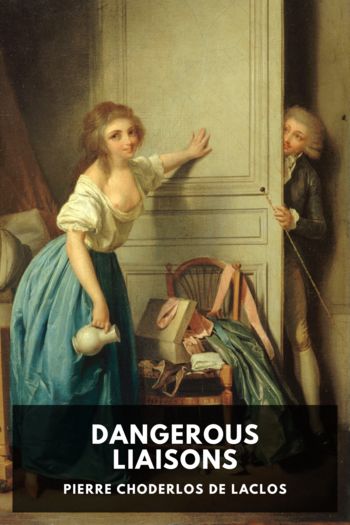The Disappearance of Stephanie Mailer: A gripping new thriller with a killer twist, Joël Dicker [general ebook reader .txt] 📗

- Author: Joël Dicker
Book online «The Disappearance of Stephanie Mailer: A gripping new thriller with a killer twist, Joël Dicker [general ebook reader .txt] 📗». Author Joël Dicker
“How come nobody realized?” Derek said.
“I assumed there was one invoice for the council and one for accountants and the two sums did not correspond, but nobody, apart from me, thought to check.”
“And you said nothing?”
“Well, I prepared an article for the Chronicle and I went to see Mayor Gordon to ask him for an explanation. And you know what he told me?”
* * *
Orphea Town Hall, Mayor Gordon’s office
February 15, 1994
Mayor Gordon read the article that Bergdorf had brought him. Gordon seemed calm while Bergdorf was the nervous one. At last, the mayor put the article down, looked up at Bergdorf, and said in an almost comical tone:
“What you’ve shown me here is very serious, my dear Steven. So there’s corruption at the highest level in Orphea?”
“Yes, Mr Mayor.”
“This is going to create quite a stir. Of course, you have copies of the contracts and the balance sheets to prove all this?”
“Yes, Mr Mayor.”
“You’ve done a very thorough job. Congratulations. You know, my dear Steven, it’s a remarkable coincidence that you should come to see me. I was planning to talk to you about a great project. I’m sure you’re aware that in a few months’ time we’ll be celebrating the opening of our first theater festival?”
“Absolutely, Mr Mayor,” Bergdorf replied, none too sure where Gordon was going with this.
“Well, I’d like you to write a book about the festival. A little book in which you go behind the scenes and talk about the creation of the festival, all of it illustrated with photographs. It would appear just as the festival opens. It would make a souvenir to be treasured. The audiences will lap it up. By the way, Steven, what kind of fee would you ask for a job like that?”
“I . . . I don’t know, Mr Mayor. I’ve never done anything like it before.”
“In my opinion, it should be about $100,000.”
“You . . . you’d pay me $100,000 to write this book?”
“Yes, that strikes me as normal for a writer of your calibre. On the other hand, obviously, it wouldn’t be possible if an article were to appear in the Chronicle about the handling of the municipal accounts. Because then the accounts would be subject to scrutiny and people wouldn’t understand my paying you such a sum. You see what I mean . . .”
* * *
“And you wrote the book!” I said. The book that Betsy and I had found at Springfield’s. “You took the bribe.”
“Oh, no, Captain Rosenberg!” Bergdorf said. “No insults, please! I could hardly refuse an offer like that. How could I? It was an opportunity to make a little money. I could have bought myself a house with it. Unfortunately, I was never paid, because that idiot Gordon got himself murdered before I could get my hands on the money. To stop me turning against him once I had my $100,000, he told me he’d pay me after the book was published. Two days after Gordon died, I went to see Alan Brown, who was standing in as mayor. There was no written contract between Gordon and me, and I didn’t want our agreement to end on the scrapheap. I supposed Brown was in on it, but I soon realized he knew nothing. He was so stunned that he asked me to resign with immediate effect. If I didn’t, he would go to the police. He told me he wouldn’t tolerate a corrupt journalist on the Chronicle. I had no choice but to leave, and that’s how that cockroach Bird ended up as editor, even though he writes like an amateur!”
* * *
In Orphea, Charlotte Brown, the mayor’s wife, had somehow managed to tear her husband away from his office and take him out to lunch at Café Athena. He struck her as terribly tense and nervous. He barely slept, ate hardly anything, and his features were drawn. She had thought that a lunch in the sun on the terrace would do him a lot of good. The initiative was a success: Brown, having assured her that he didn’t have time for lunch, had finally let himself be persuaded. The break did seem to do him good. The respite was short-lived, though: his cell phone started vibrating on the table and when he saw the name of the person calling him, he looked worried. He moved away from the table to answer.
Charlotte Brown could not catch the gist of the conversation, but she heard a few outbursts and saw extreme agitation in her husband’s gestures. She heard him suddenly say in an almost imploring voice, “Don’t do that, I’ll find a solution,” before hanging up and coming back, furious, just as a waiter was serving the desserts they had ordered.
“I have to go to the town hall,” Brown said.
“Already? At least eat your dessert. It can wait a quarter of an hour, can’t it?”
“I have a problem, Charlotte. That was the manager of the company that’s due to perform the main play in the festival. He says he’s heard about the strike and the actors are afraid for their safety. They’ve decided to withdraw. I don’t have a play. It’s a disaster.”
He left the restaurant, not noticing the woman sitting at a table with her back to him since the beginning of his lunch, who had heard the whole conversation. She waited for Charlotte Brown to also leave, then picked up her phone.
“Is that Michael Bird? This is Sylvia Tennenbaum. I have some information about the mayor that should interest you. Can you drop by Café Athena?”
* * *
When I had asked Bergdorf where he was on the night Stephanie Mailer had gone missing, he had assumed an offended air and replied, “I was at a private view, and you can check that, Captain.” Which we did, as





Comments (0)